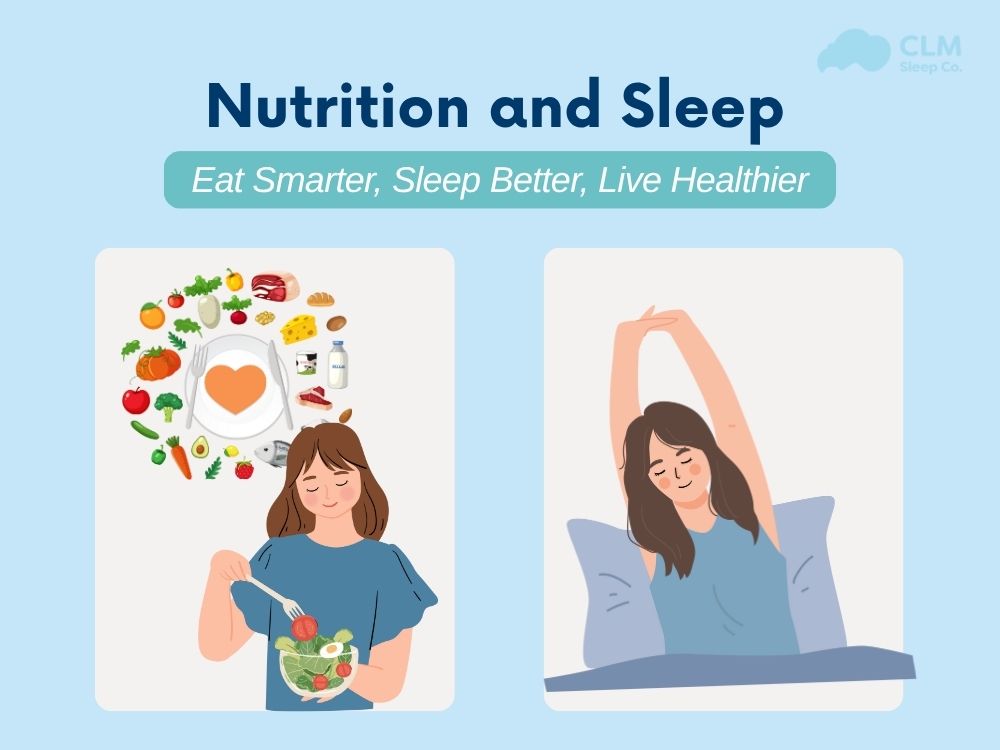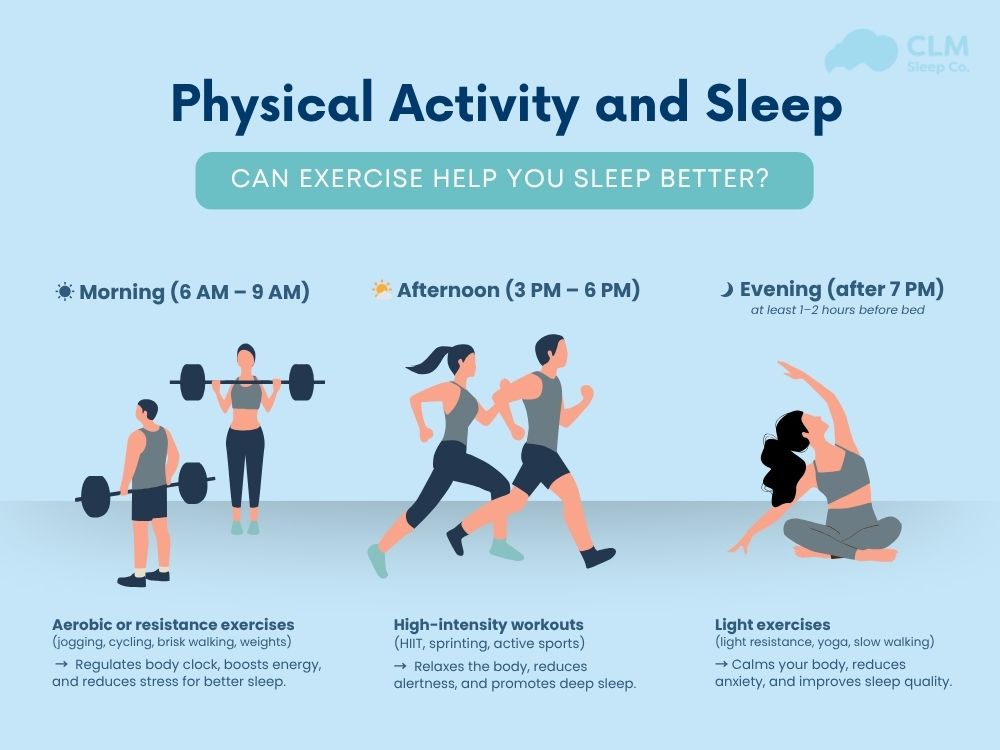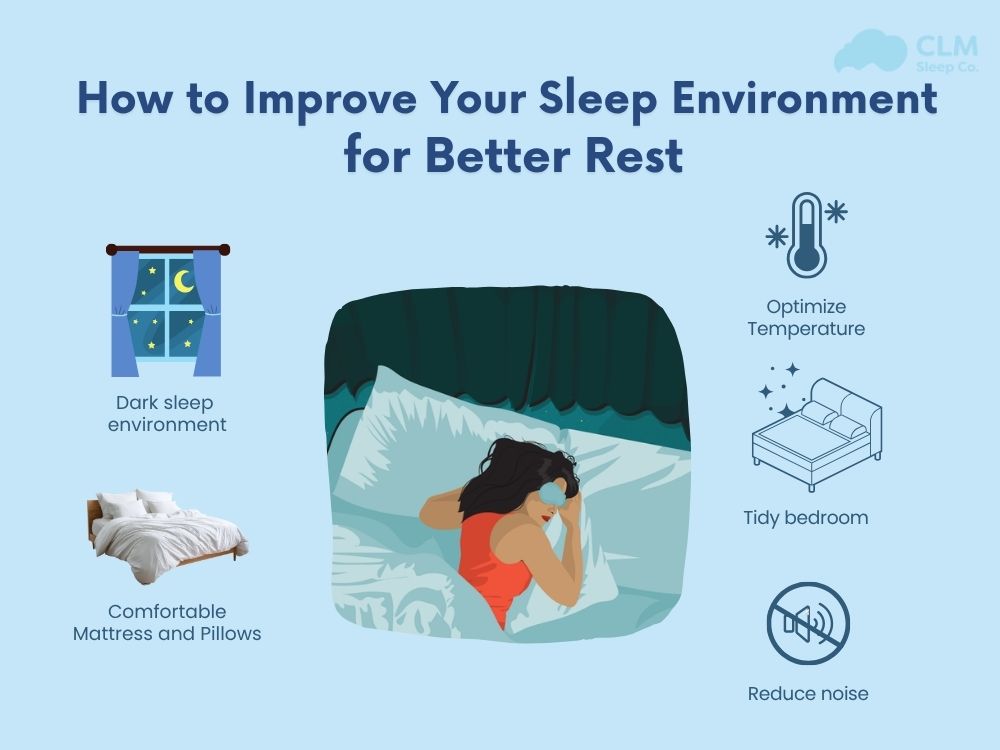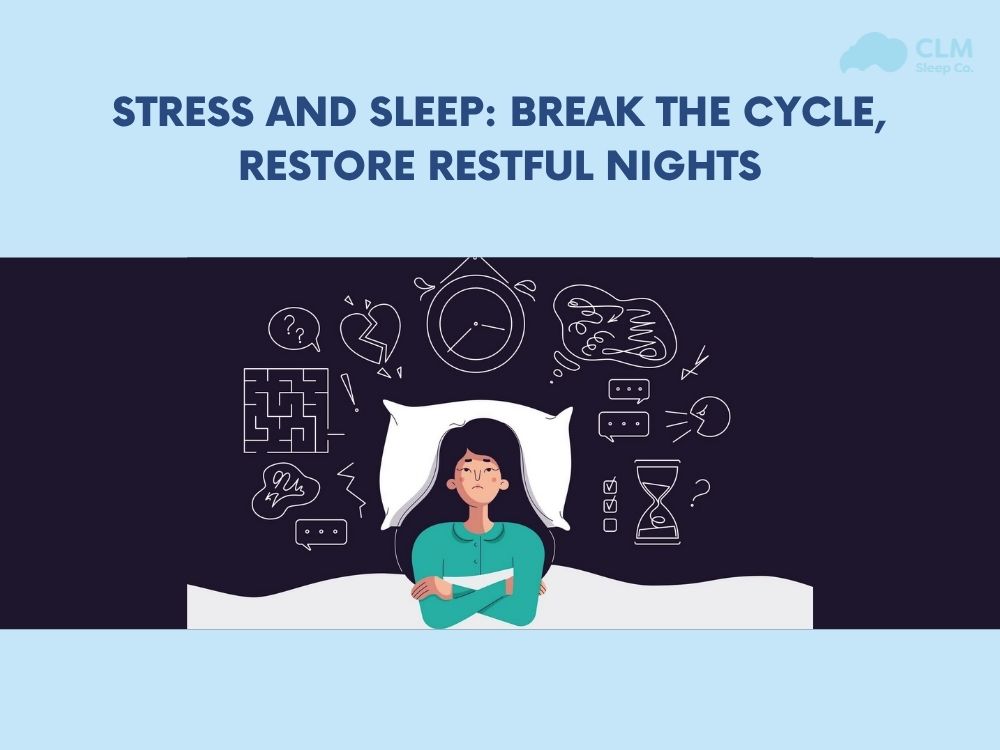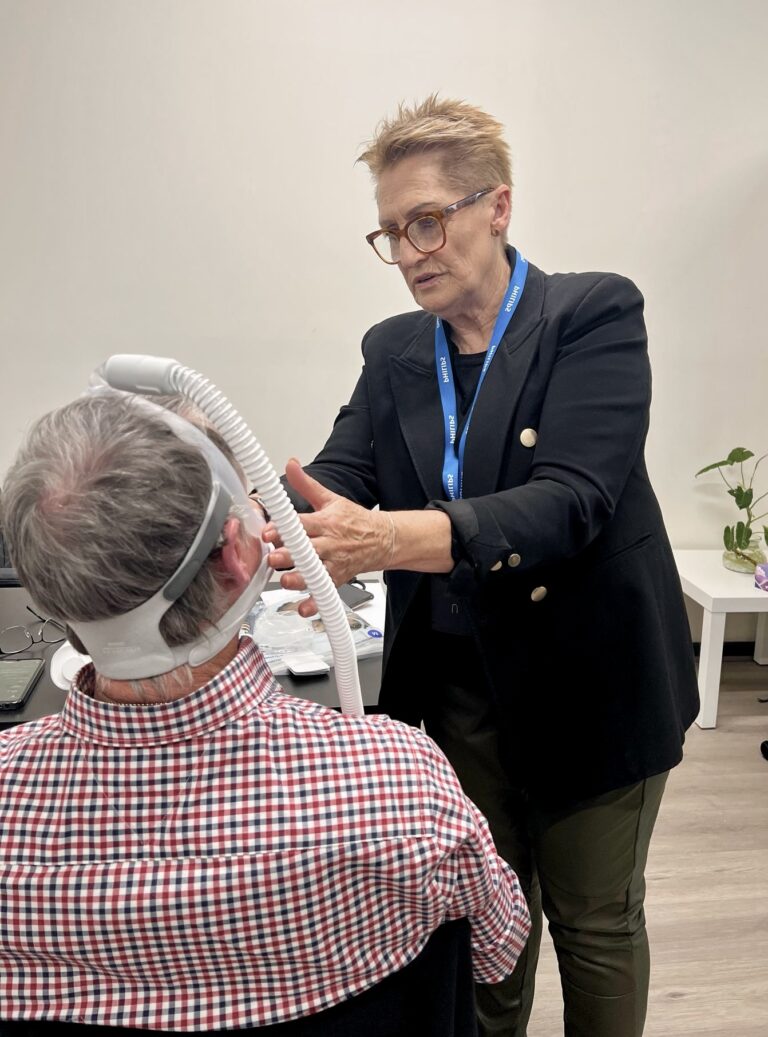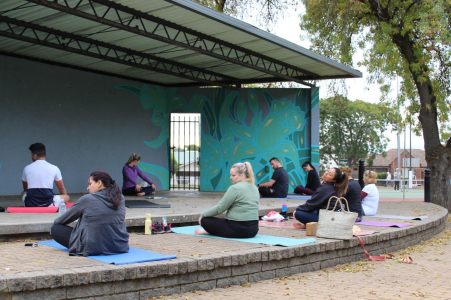Good sleep doesn’t just depend on your bedtime routine, it’s part of good sleep hygiene, and it starts with what’s on your plate. The relationship between nutrition and sleep goes beyond calorie intake. It is a delicate balance of hormones like melatonin and serotonin, along with nutrients that promote mental relaxation. In this guide, we’ll explore how your diet and sleep interact, which foods can enhance your rest and the habits to avoid for a truly restorative night’s sleep.
Does nutrition affect your sleep?
Absolutely and in more ways than one. Nutrition affects sleep through various biological mechanisms, particularly involving hormones, neurotransmitters and metabolism.
Hormone and sleep regulation
There are two main types of hormones that play a central role in the human sleep-wake cycle, which are melatonin and serotonin. Serotonin helps you relax and stabilize your mood during the day, while melatonin signals your body that it’s time to rest. For example, vitamin B6 ((found in many foods from meat, fish to vegetables and grains) helps convert tryptophan into serotonin, and then into melatonin. If there is a nutritional deficiency, this process will be interrupted, leading to difficulty sleeping or restless sleep.
In addition, the metabolism process also has a strong impact on sleep. When your blood sugar fluctuates due to poor eating habits or nutrient deficiencies, your body experiences stress that makes it harder to fall and stay asleep.
Macronutrients and their role
- Carbohydrate: Consuming complex carbs (such as whole grains, sweet potatoes and oats) helps increase tryptophan availability in the brain which support melatonin production. However, refined starch or sweets cause energy to spike quickly and then drop, disrupting sleep.
- Protein: Protein-rich foods such as eggs, chicken, beans… Protein plays a role in providing amino acids that help regulate neurotransmitters related to sleep.
- Fats: Especially healthy fats (omega-3) help regulate serotonin, reduce inflammation, and improve sleep quality.
Micronutrients and sleep health
- Vitamin B6 & D: B6 helps synthesize serotonin, while a deficiency in vitamin D can cause fatigue and sleep disturbances.
- Minerals such as magnesium, calcium and zinC: They are critical for muscle relaxation, nerve function and the synthesis of melatonin. Lack of these minerals can lead to short, shallow sleep.
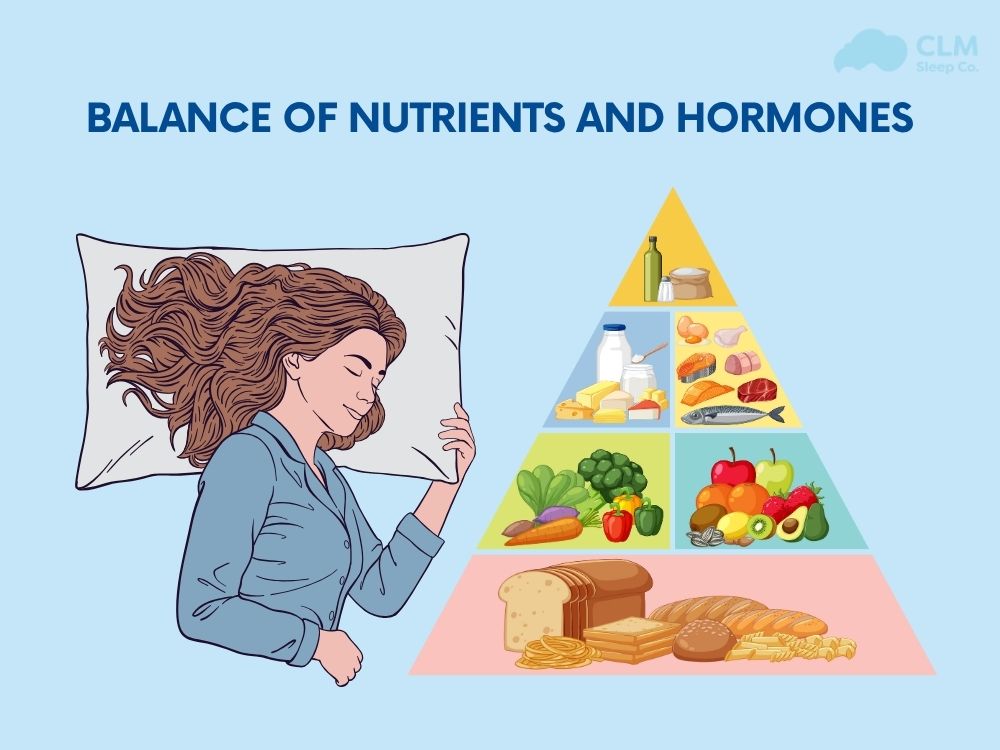
What nutrient helps you sleep better?
If you often find yourself tossing and turning, struggling to sleep, it is very likely that your diet may be missing certain key nutrients. Let’s take a closer look at the vitamins and minerals that can help you sleep more soundly and where to find them.
Magnesium
Known as the “relaxation mineral”, magnesium helps soothe the nervous system and regulate melatonin.Foods rich in maggi include spinach, almonds, pumpkin seeds and dark chocolate. Lack of magnesium is also one of the causes of insomnia or shallow sleep.
Vitamin D
Vitamin D influences sleep regulation by supporting serotonin production and circadian rhythm balance. You can supplement through sunlight, fatty fish, or vitamin D-fortified milk. Vitamin D deficiency is associated with conditions like insufficient sleep and daytime fatigue.
Vitamin B6
Vitamin B6 is easily found in many prominent foods, abundant in bananas, chicken, tuna, and chickpeas. A deficiency may lead to irritability, vivid dreams or difficulty falling asleep.
Calcium
Calcium helps the brain use tryptophan to make melatonin, known as an essential nutrient for strong bones. Dairy products, kale and fortified plant based milk are excellent sources.
Tryptophan
This amino acid is the building block of serotonin. They are found in turkey meat, eggs, tofu, and seeds. Combining tryptophan with complex carbohydrates at dinner helps with better absorption and creates a feeling of relaxation before sleep.
Zinc
Zinc is a component that supports the nervous system and maintains a stable sleep cycle. Oysters, lentils and whole grains are good sources.
Iron
The role of iron in the body is to transport oxygen and balance energy. Low iron levels are often linked to restless legs syndrome and frequent awakening during the night. Include red meat, spinach and beans in your diet to maintain healthy levels.
Omega-3
Omega-3s help regulate serotonin levels and improve sleep quality. We can obtain Omega-3 from salmon, walnuts, chia seeds, flaxseeds. Supplementation may be beneficial for those with low fish intake.
Foods and Habits That Disrupt Sleep
Just like there are foods that help you sleep well, there are also things that cause restless sleep or prolonged insomnia. Poor diet and sleep habits can trigger insomnia and nighttime awakenings. There are dishes that you may be consuming every day
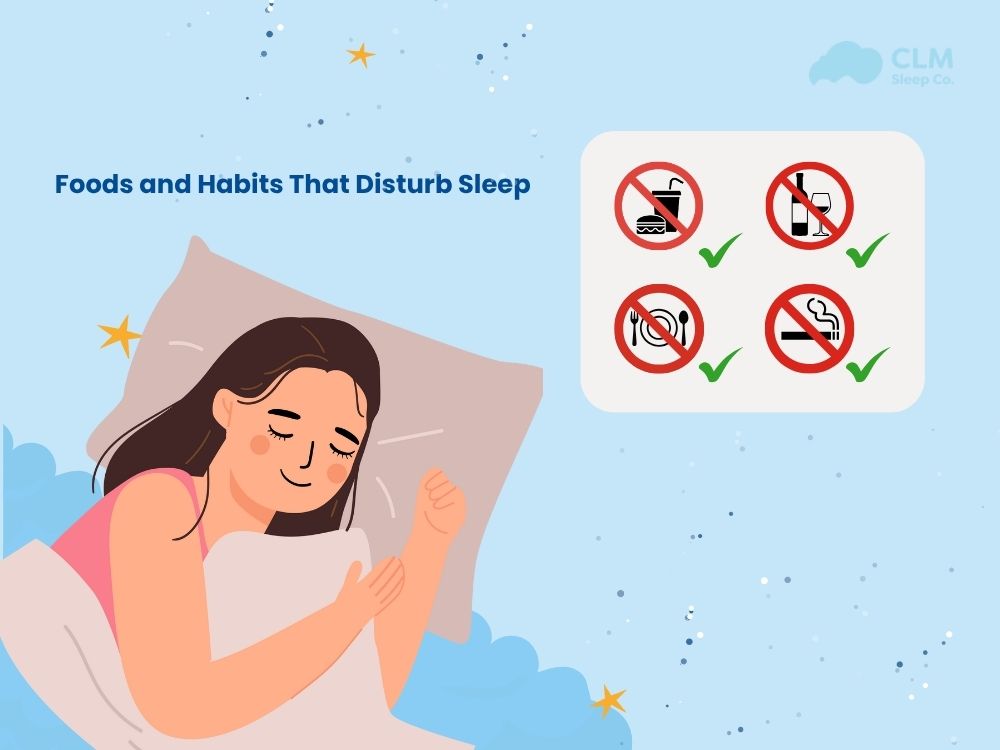
Caffeine
Caffeine blocks adenosine, the brain chemical responsible for making you feel sleepy. Harmful habits can be changed by limiting coffee, strong tea, or chocolate after 2 PM so that the body has time to relax. Then gradually limit its use to improve better sleep.
Alcohol
Some people say that drinking alcohol helps them feel sleepy and makes it easier to sleep, but in reality, it is an addictive substance and long-term use of alcohol disrupts REM sleep and causes frequent awakenings. Therefore, the first thing you need to understand is its harmful effects and gradually change your habits starting from avoiding drinking alcohol before sleeping.
Sugary and Fast food
High sugar or processed foods lead to energy spikes and crashes, affecting sleep hormones. Today, sweet treats and fast foods are diverse and appealing not only in taste but also in their convenience. To be able to sleep well or improve the quality of your sleep, prioritize fresh, whole foods.
Craving greasy, spicy food is also a cause of bloating and reflux that affects your sleep. Choosing a light dinner with greens or lean protein will help you improve and avoid insomnia.
Irregular eating patterns
Eating a balanced diet but skipping meals or eating too late disrupts the biological clock. Long-term, in addition to affecting the stomach, your sleep is also somewhat interrupted. Therefore, Aim for consistent meal times throughout the day.
Irregular sleep schedule
Staying up late, using mobile devices, blue light, or irregular waking times disrupts the body’s natural biological rhythm. Keep a steady routine to strengthen your sleep wake cycle.
Smoking
Nicotine is a stimulant that inconsistent times confuses your internal clock. Nowadays, everyone understands the harmful effects of tobacco, but not everyone can refuse it. But the call for you to reduce or quit smoking will still be something that CLM Sleep wants to remind you to improve and help with your sleep.
How to Eat Better for Sleep
Has anyone told you that improving your nutrition and sleep balance doesn’t require drastic changes, just mindful habits. To CLM Sleep, share with you!
- The first thing is to always prioritize choosing fresh and pure food to intake into the body. If possible, change the habit of frequently eating out to cooking at home; after one month, you may notice a significant change in your sleep.
- Plan your meals with sleep in mind. Eat larger meals earlier in the day and lighter ones in the evening.
- Add sleep friendly snacks. Some types of foods that support sleep that you can choose for a good night’s sleep before going to bed. Like a little yogurt, a warm glass of milk before sleep helps stabilize blood sugar.
- Maintain consistency. Building a routine for regular meal times and sleep times helps the body adjust its biological clock. From there, it improves your mental health and sleep.
By aligning your meals with your body’s natural rhythm, you’ll experience smoother digestion, stable energy and more restful nights.
Conclusion
Good sleep isn’t just about the number of hours you rest, it’s about how your body is nourished throughout the day. The strong connection between nutrition and sleep shows that the food you eat can determine the quality of your sleep. From magnesium to melatonin support tryptophan, small changes in your diet and sleep habits can make a world of difference.
CLM sleep hopes you will eat smarter and sleep deeper. And you’ll wake up every morning not just well-rested but healthier, more balanced and ready to thrive.
FAQs
What is the 10 3 2 1 rule for sleep?
This is the principle that helps you build a healthy sleeping habit that has been researched and applied:
- 10 hours before bed: no more caffeine
- 3 hours before sleep: stop eating heavy meals or drinking alcohol
- 2 hours before bed: finish work and mentally unwind
- 1 hour before bed: turn off screens and relax.
Following this helps your body transition smoothly into rest mode.
What is the 80% rule in eating?
The eating principle of the Japanese is called Hara Hachi Bu. It encourages you to eat until you’re about 80% full. This method helps avoid overeating, reduces activity pressure, improves digestion, and helps regulate metabolism. It is one of the important factors to maintain healthy nutrition and sleep.
